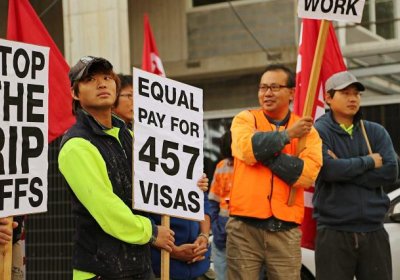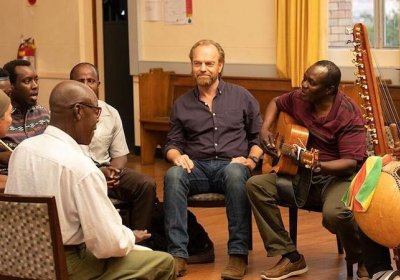In Singapore, the novel coronavirus found the city-state's weak underbelly: some 300,000 lowly-paid migrant workers living in crowded dormitories, writes Peter Boyle.
1264
The Venezuelan Armed Forces and the National Bolivarian Police repelled two attempted invasions by mercenaries on May 3 and 4, writes Kerry Smith.
The latest Stockholm International Peace Research Institute figures reveal a world in which arms spending is rising across most, if not all regions, writes Chris Nineham.
To date, there have been no cases of COVID-19 among the close to a million Rohingya refugees currently sheltering at camps in southern Bangladesh, writes Paul Gregoire. However, the danger of a mass outbreak is very real.
Labor’s immigration spokesperson Kristina Keneally wants a post COVID-19 migration policy that privileges skilled workers. Pip Hinman argues that this calculated intervention is both racist and dangerous.
Chris Slee reports on a meeting addressed by Priya, a Tamil refugee detained on Christmas Island.
Anti-apartheid freedom fighter, Denis Goldberg spent more than a quarter of his life in jail before he was released in 1985. He spent the remaining years speaking out against oppression and injustice before dying on April 29 in Cape Town at the age of 87, writes Raymond Suttner.
The federal Coalition government is exerting a lot of pressure on states to make schools re-open. But it should only happen if schools are safe for teachers and students, argue Mary Merkenich, David Linden and Vivian Messimeris.
Hearts and Bones is a compassionate portrayal of the refugee experience that empowers and dignifies, without romanticising the trauma and struggle, writes Annolies Truman.
Dr Deb Foskey, a decades-long fighter for the environment and long-time member of the Greens, died on May 1 after a 12-month struggle with cancer, writes Jim McIlroy.
For a film that claims to be about breaking the environment/climate movement away from the tentacles of capitalist-funded NGOs, Planet of the Humans fails to articulate a vision of what an alternative, people powered climate movement could look like, writes Zane Alcorn.
- Previous page
- Page 2










